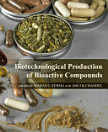Yeast Biotechnology and Biorefinery: Background, Potential and Future Perspective
About this ebook
About the author
Dr. Anuj K. Chandel is a Professor in the Department of Biotechnology, Engineering School of Lorena, University of São Paulo, Brazil. He has over 23 years of research experience working on process optimization and large-scale production of industrial enzymes and vaccine particles, biofuels, and membrane-based separation of fats, proteins, and viruses. He previously worked at the University of São Paulo, Brazil, the University of Stellenbosch, South Africa, and the University of Arkansas, Fayetteville, USA. He has also worked Dalas Biotech Ltd, Bhiwadi, Rajasthan; Celestial Biolabs Ltd, Hyderabad, and Centro de Tecnologia Canaviera-Piracicaba, Brazil, on large-scale production of industrial enzymes and cellulosic ethanol, for about 7 years. Dr. Chandel has published 125 articles in peer-reviewed journals and 56 book chapters, has edited 15 books, and holds one Brazilian patent. His primary research interests is to develop sustainable processes for bioconversion of lignocellulosic biomass into renewable fuels and biochemicals by bridging the gap between research laboratories and industries.
Fanny M. Jofre is a biologist with master’s degree in Industrial Biotechnology and is currently a PhD candidate at the University of São Paulo (USP), Brazil. Her research focuses on the sustainable conversion of lignocellulosic biomass into high-value products, specifically utilizing agro-industrial by-products, mainly sugarcane bagasse and straw. She has published peer reviewed studies on optimizing the biotechnological production of xylitol, challenges associated with scaling up this bioprocess and yeast cell wall composition. Additionally, her work includes significant contributions to understanding the role of yeasts in biotechnology processes. The researcher is dedicated to advancing sustainable biotechnological solutions and integrating them into industrial applications.
Dr. Júlio C. Santos is an Associate Professor in the Lorena School of Engineering (EEL), University of São Paulo, Brazil. A chemical engineer with PhD in Industrial Biotechnology, he has published approx. 140 articles in peer-reviewed journals. His research work has been performed in partnership with professionals from different countries, including Brazil, India, South Korea, Mexico and Denmark, and he is on the editorial board of the journals MethodsX, Advances in Polymer Technology and Brazilian Journal of Microbiology. Dr. Santos has worked in the field of sustainable processes, focusing on renewable biomass and working on topics such as bioreactors, biorefineries, lignocellulosic biomass, biopolymers, biopigments, ethanol, biodiesel, process simulation, enzymes, and immobilized cells.
Dr. Maria das Graças de Almeida Felipe is a distinguished Full Professor at the Department of Biotechnology, Engineering School of Lorena – EEL, University of São Paulo – USP, Brazil. With an impressive 36-year tenure at EEL-USP, she specializes in applied microbiology and sustainable biomolecule production. Noteworthy for her research on xylitol, she ranks as the second author globally with the most publications on this topic. Dr. Felipe's focus is on overcoming biotechnological challenges in lignocellulosic biomass conversion through in-depth studies on microbial metabolism, particularly yeasts. She mentors students at both undergraduate and postgraduate levels, fostering international collaborations to advance lignocellulose biotechnology within a circular bioeconomy framework.





